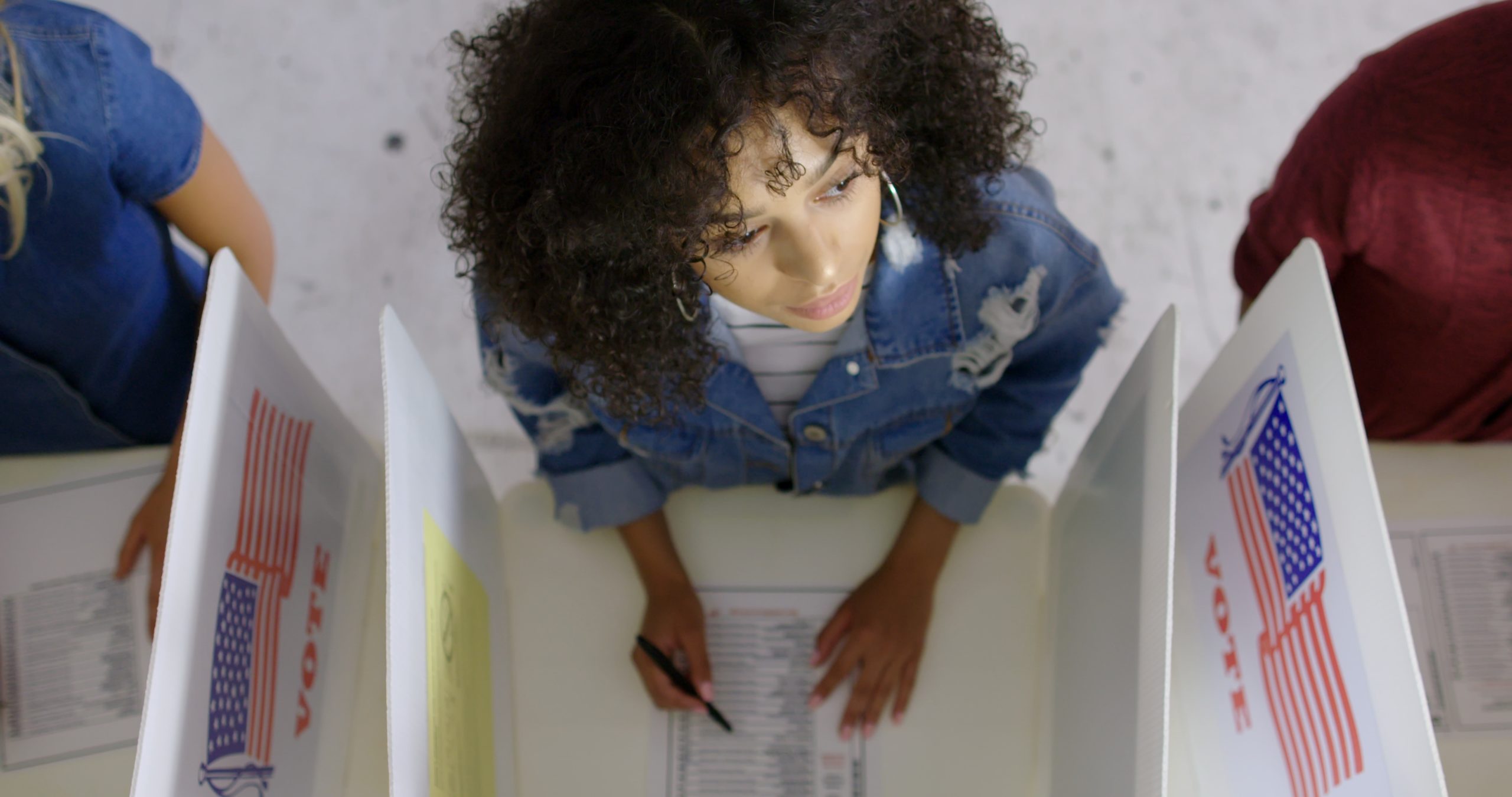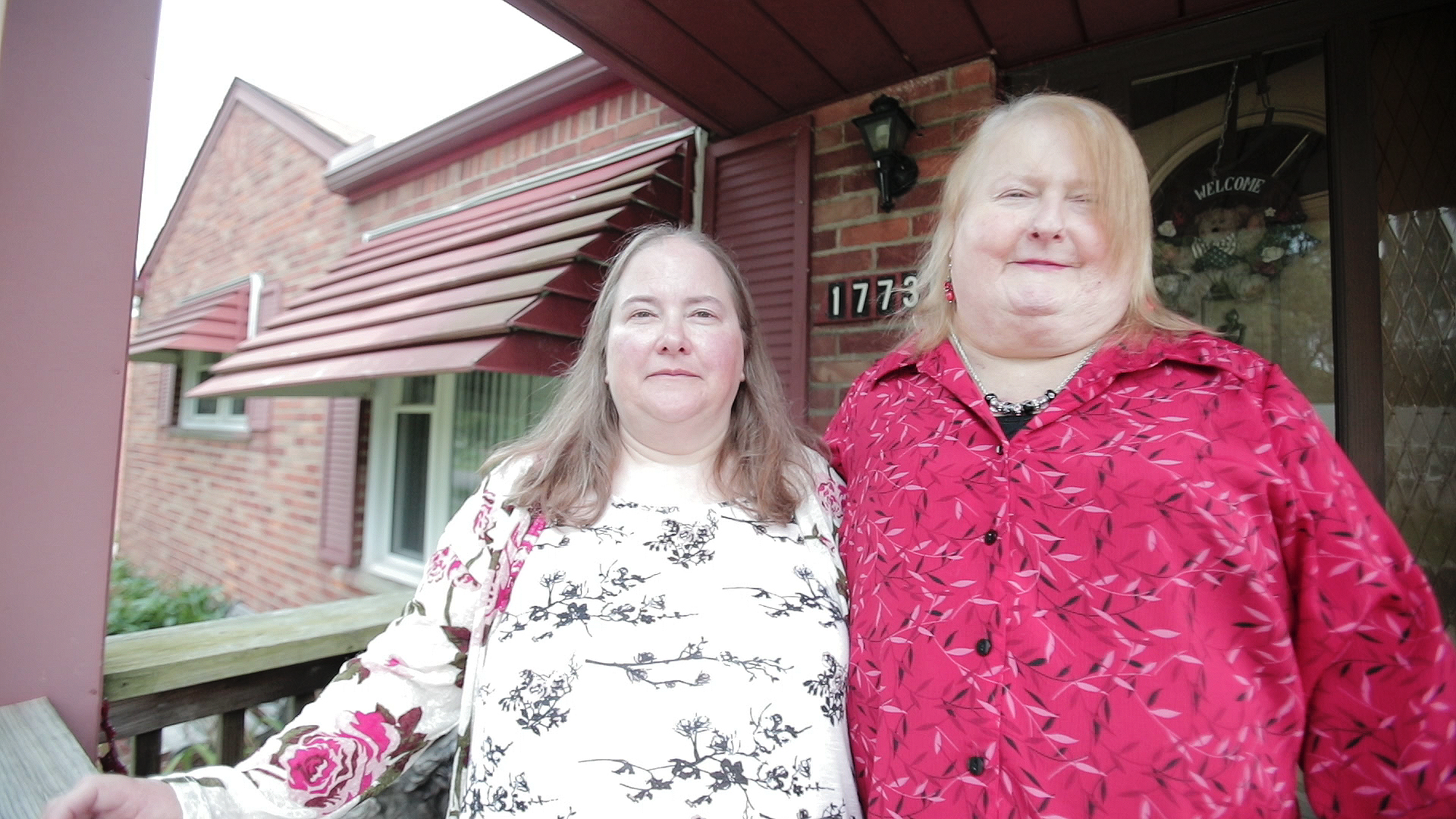Abortion rights, women of color, and LGBTQIA+ people are under attack. Pledge to join us in fighting for gender justice.
Midterm Rewind: A Look at Gender Justice on the Ballot

My eyes flitted between my TV screen and Twitter feed on the evening of November 8 as I watched polls close across the country and election results trickle in. So much was on the line this election—our freedom, our autonomy, our democracy.
After turning in from a very long evening, all of my watching and waiting was worth it. From ballot measure victories to historic firsts for representation of elected officials, there were many reasons for joy.
Here is how voters across the country showed up for gender justice this election:
Reproductive Freedom
Voters supported policies that protect and enshrine the right to make their own decisions about their bodies, lives, and futures—and they elected officials who vowed to protect that right as well.
Residents of Michigan, California, and Vermont voted to codify reproductive freedom in their state constitutions. Meanwhile, voters in Kentucky and Montana rejected anti-abortion proposals in their states.
Voters in Michigan, Wisconsin, and Illinois reelected their governors, each of whom have promised to continue their fight to protect the right to abortion in their states. Pennsylvania elected longtime abortion rights advocate Josh Shapiro as governor, and Arizona elected Katie Hobbs, who has vowed to increase access to abortion and oppose any restrictive and extreme measures in the state, as governor.
Gender Justice on the Ballot
I was so happy to see that, across states and communities, people came together to support women, families, and LGBTQI+ people on the ballot.
In Washington, D.C. voters approved Initiative 82, which will increase the minimum wage for tipped workers in D.C. to the same minimum wage as non-tipped workers by 2027. Nebraska and Nevada voters approved increases to the minimum wage in their states, with Nevada also eliminating their two-tiered minimum wage system. In Illinois, voters said “yes” to a constitutional amendment that will codify the right for workers to organize and collectively bargain and prevent lawmakers from passing any laws that interfere with this right.
Arkansas voters rejected an amendment that could have hurt LGBTQI+ communities and weakened accountability in legal and civil cases under the guise of religious freedom. Meanwhile, Nevada will add language to its constitution to enshrine equal rights for all, regardless of “race, color, creed, sex, sexual orientation, gender identity or expression, age, disability, ancestry or national origin.”
New Mexico became the first state in the nation to guarantee a constitutional right to early childhood education after voters approved a ballot measure amending the state’s constitution. In West Virginia, voters rejected a proposal requiring the Board of Education to seek state legislative approval for curricula, a move that would have politicized education.
Broken Records and Historic Firsts
This November, voters made their mark on the pages of history—electing more women to state legislatures than ever before.
We also had some historic firsts for representation, like:
- Maura Healy elected as Massachusetts’ first woman governor and the country’s first out lesbian state executive
- Kathy Hochul elected as the first woman governor of New York
- Wes Moore elected as Maryland’s first Black governor
- Aruna Miller elected as the first Asian American lieutenant governor of Maryland
- Andrea Campbell elected as Massachusetts’ first Black woman attorney general
- Charity Clark elected as the first woman attorney general of Vermont
- Anthony Brown elected as the first Black attorney general in Maryland
- Shirley Weber elected as California’s first Black secretary of state
- James Roesener elected as the first out trans man to serve in any state legislature in the U.S. after winning in New Hampshire
- Steven Raga elected as the first Filipino American in the New York State Assembly
- Rep. Delia Ramirez elected as the first Latina congresswoman to represent Illinois in Congress
- Alex Padilla elected as the first Latino to represent California in the Senate.
- Robert Garcia of California became the first LGBTQI+ immigrant elected to Congress
- Becca Balint elected as the first woman and first openly gay person to represent Vermont in Congress
- Summer Lee elected as the first Black woman to represent Pennsylvania in Congress
- Shri Thanedar elected as the first Indian American to represent Michigan in Congress
- Maxwell Forst elected as the first member of Gen Z to serve in Congress
Heading into the midterm elections, things looked bleak. Roe was overturned. States across the country were moving to ban or severely restrict abortion. Lawmakers were going after trans kids and LGBTQI+ communities.
With many gender justice issues at the forefront of this midterm election, voters turned out to the polls to make their stance known: they want policies that reflect safety, dignity, and opportunity for all and legislators that center justice and freedom in their policymaking. While this election was a win for gender justice, this is a moment for us to double down, not back down. It is time now, more than ever, to make sure that our lawmakers are focused on the issues that anchor the lives of women, girls, their families, and their communities.





